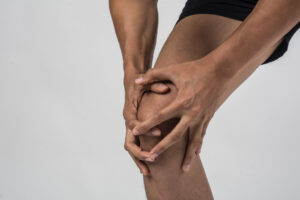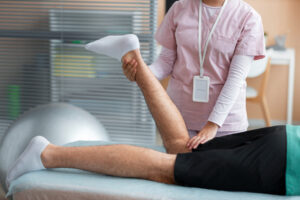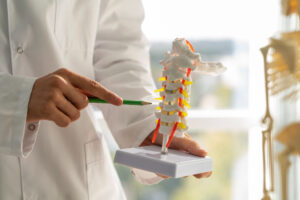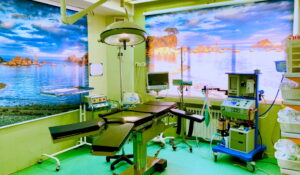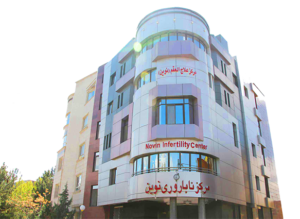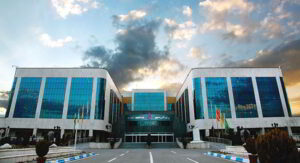Orthopedic surgery in Iran
Orthopedic surgery or orthopedics is the branch of surgery concerned with conditions involving the musculoskeletal system. Orthopedic surgery is also a specialty dealing with acute injuries, congenital and acquired disorders and chronic arthritic or overuse conditions of the bones, joints and their associated soft tissues, including ligaments, nerves and muscles.
Orthopedic surgeons in Iran use both surgical and nonsurgical means to treat musculoskeletal trauma, spine diseases, sports injuries, degenerative diseases, infections, tumors, and congenital disorders.
Orthopedic surgeons in Iran specialize in the diagnosis and treatment of disorders of the bones, joints, ligaments, tendons, muscles and nerves (musculoskeletal system).
Orthopedic surgeons use both surgical and nonsurgical means to treat musculoskeletal trauma, spine diseases, sports injuries, degenerative diseases, infections, tumors, and congenital disorders.
Orthopedic surgeons in Iran
Some of the Orthopedic surgeons we work with
Tehran
Dr. Afshin Taheri Azam specializes in orthopedic, hip, pelvis, and knee surgery.
Dr. Mohammad Javad Mortazavi is an orthopedic and joint surgeon.
Dr. Alireza Sahranoord is a bone and joint surgeon and orthopedist.
Dr. Bahamin Attar is an orthopedic and spine surgery specialist.
Dr. Hamid Hessari is a spine surgeon fellow.
Dr. Ramin Talebian Khorasani is an orthopedic specialist.
Dr. Mohammad Zare is an orthopedic and spine surgeon in Iran.
Dr. Armin Akbarzadeh is an orthopedic and spine surgeon in Iran.
Dr. Farhad Soltani is a surgeon with extensive ophthalmology experience.
Dr. Mehdi Moazi is an expert knee surgeon.
Dr. Hossein Haji Taghi is a specialist in knee, shoulder, and sports injuries.
Shiraz
Dr. Seyed Amirreza Mesbahi is a specialist in bone and joint surgery and a spine surgeon fellow.
Dr. Mohammad Aminpour Ali Mohammadi is a spine surgeon fellow and an orthopedic specialist.
Dr. Mohammad Jafar Tamdan is a bone and joint surgeon (Joint replacement).
Dr. Arash Khazaei is a bone and joint surgeon. He specializes in hip and knee joint replacements, knee surgery (meniscus and cruciate ligament), fractures, spine, and congenital limb deformities.
Mashhad:
Dr. Ali Danesteh is a specialist in heel spur, Achilles tendon rupture, bones and joints, anterior cruciate ligament (ACL) injuries, arthroscopy, wrist arthroscopy, joint injection, joint pain, knee pain, sports injury, joint dislocation, knee dislocation, knee fracture, knee surgery, spine surgery, hip and thigh surgery, shoulder, scapula, elbow surgery, and foot and ankle surgery.
Dr. Seyed Reza Sharifi provides services for knee surgery, osteoporosis, Achilles tendon rupture, knee pain, knee dislocation, knee fracture, and joint replacement.
Dr. Mahdi Minouspehr provides services for heel spur, bones and joints, joint inflammation, shoulder replacement surgery, ultrasound joint injection, wrist fracture, ankle fracture, knee dislocation, knee fracture, knee surgery, hip and thigh surgery, shoulder, scapula, elbow surgery, and foot and ankle surgery.
Dr. Mohammad Bagheri Qozhdi provides services for arthroscopy, foot pain, lumbar disc issues, cervical disc issues, discectomy, hip injuries and issues, hip and thigh joint replacement, joint inflammation, muscle weakness, neck pain, osteotomy surgery, rotator cuff injury, shoulder joint dislocation, sports injuries, shoulder tendon repair surgery, shoulder replacement surgery, ultrasound joint injection, wrist fracture, ankle fracture, hip fracture, joint dislocation, knee dislocation, knee fracture, knee joint replacement, knee surgery, spine surgery, hip and thigh surgery, shoulder, scapula, elbow surgery, and foot and ankle surgery.
Dr. Mostafa Khalili Poor is a surgeon and orthopedic specialist who has completed a shoulder and knee fellowship in Italy.
Dr. Mehdi Ataei Azimi is an orthopedic specialist with a fellowship in hand surgery and peripheral nerves from Mashhad. He specializes in treating fractures, nerve and tendon injuries, and congenital disorders of the upper limb.
Dr. Farzad Arasteh is a specialist in bone and joint surgery (orthopedics). He specializes in treating fractures, joint replacement of the knee and hip, treatment of cruciate ligament and meniscus injuries, and treatment of tendon and nerve amputation.
Orthopedic surgery in Iran
Orthopedic surgery in Iran
Orthopedic surgery is a procedure that focuses on treating conditions and injuries related to the musculoskeletal system. Orthopedic surgeons can diagnose, treat, repair, and prevent diseases that impact the health of your bones, muscles, and joints.
What is orthopedic surgery?
Orthopedic surgery is a specialized field of medicine that focuses on the treatment, diagnosis, and prevention of illnesses or injuries that impact the musculoskeletal system. The musculoskeletal system comprises the following components:
- Bones
- Muscle.
- Joint.
- Tendons and ligaments
- Cartilage
- Soft tissues
When is orthopedic surgery needed?
Individuals who have had trauma, such as from a motor vehicle collision or athletic injuries, may require orthopedic surgery to rectify fractures, dislocated joints, or ruptured tendons. If you have arthritis, bone ailments, spinal disorders, or genetic malformations the best orthopedic surgeons can provide assistance.
Types of orthopedic surgery
Orthopedic surgeons have the option to specialize in certain regions of the musculoskeletal system. There are a multitude of orthopedic surgery procedures, however, some of the more prevalent ones include the following:
Joint replacement surgery (Hip, Knee, Shoulder, etc.)
Joint replacement surgery is a very efficient therapy for those experiencing intense joint pain and restricted mobility. Common joint replacements often include the hip and knee, however, the shoulder and elbow are also viable options for replacement.
Joint replacement can be counted as a minimally invasive surgery which is done by using tiny incisions to minimize the impact on the muscles, ligaments, and tendons beneath the skin.
During the surgical procedure, the affected joint is extracted and substituted with a synthetic implant composed of metal, plastic, or ceramic materials, which is specifically engineered to replicate the motion of the original joint.
Arthroscopic surgery
Arthroscopy is a treatment with minimum invasiveness that enables surgeons to detect and treat a range of joint disorders. Orthopedic doctors utilize an arthroscopy or a miniature camera to visually examine the interior of the joint and effectively treat conditions such as cartilage damage, ligament tears, or inflammatory tissues.
Arthroscopic surgery provides expedited recovery periods, smaller surgical openings, and less postoperative discomfort in comparison to conventional open surgery.
Fracture repair
Fractures are a prevalent cause of orthopedic surgery. If there is a fracture in the arm, leg, or spine, it may be required to perform surgery to correctly align and stabilize the shattered bone.
Surgeons employ methods such as open reduction internal fixation (ORIF) or external fixation to secure the fractured fragments in place throughout the healing process.
Spine surgery
Spinal surgery is performed with the goal of relieving back pain and rectifying spinal abnormalities or injuries. Procedures such as spinal fusion, laminectomy, or discectomy can effectively stabilize the spine, alleviate nerve compression, and restore optimal spinal alignment.
Technological advancements, such as minimally invasive methods and robotic-assisted surgery, have enhanced the results of spinal surgeries and decreased the time needed for recuperation.
Sports medicine procedures
Orthopedic surgery treatments in sports medicine primarily address the identification, management, and avoidance of injuries associated with sports and physical exertion. Orthopedic surgeons with expertise in sports medicine are specifically educated to treat a broad spectrum of musculoskeletal problems that athletes and physically active persons may experience.
Foot and ankle surgery
The surgical objective may vary depending on the specific problem, aiming to realign fractured bones, fuse inflamed joints, remove excessive tissue, or mend a torn ligament or tendon.
Hand and wrist surgery
The procedures involved in fixing the deformities of the hands may differ based on the specific issue being addressed. Common surgical procedures include carpal tunnel release, tendon repair, joint replacement, fracture fixation, and ligament restoration.
Preparing for Orthopedic Surgery
Prior to undergoing orthopedic surgery, you will have a consultation with a specialized orthopedic surgeon who has expertise in the specific surgical procedure required. This initial encounter is sometimes referred to as a consultation or an evaluation. The medical professionals will do a comprehensive assessment of your medical background, thoroughly evaluate the specific area of your body that requires surgery, and carefully analyze any 3D printings, such as X-rays, to gain a deeper understanding of your situation.
Subsequently, they will arrange a date for your surgical procedure. The surgeon will provide a detailed explanation of the probable risks, complications, and the expected duration of your recuperation. If you possess any inquiries, it is advisable to pose them throughout the session.
How long does orthopedic surgery take?
An orthopedic operation typically lasts for a duration of one to two hours. The duration of an orthopedic procedure may vary based on several factors, including the complexity of the surgery.
Recovery from Orthopedic Surgery
Following your surgical procedure, a member of your healthcare team will transfer you to a designated location where you will remain until the effects of the anesthetic subside. Following your time in the recovery room, you will have the option to either return home or remain in the hospital for overnight monitoring.
You must get ample rest following your operation. If necessary, it is advisable to arrange for assistance from friends or family members until you are capable of resuming your regular activities.
Your surgeon will conduct regular check-ups to ensure that you are recuperating according to the expected standards. They will arrange regular follow-up sessions to monitor the course of your recuperation. These sessions will occur at various intervals following your operation, ranging from days to weeks to months.
During subsequent examinations, your healthcare practitioner may do imaging tests, such as an X-ray, to assess the progress of your musculoskeletal system’s recovery. Engaging in physical therapy may be necessary to restore strength in the areas of your body that underwent surgical intervention.
Potential complications and risks
Although uncommon, every surgical treatment carries inherent dangers. Although this surgery is generally considered safe and has proven effectiveness, there might be some potential risks.
Potential hazards associated with orthopedic surgery may encompass:
- Bleeding
- Infection
- Stiff joints or Joint pain
- Blood clots
- Muscle weakness
- Numbness
Specific Recovery Considerations
It is crucial that you have sufficient rest after your surgery. But the amount of time for resting can vary for different surgeries.
Hip replacement surgery recovery
Typically, the majority of patients experience an improvement in their condition after around 14 days. Typically, individuals see a significant improvement in their condition within 2-6 weeks following a hip replacement surgery. Complete recuperation typically requires a duration of around one year, however, the majority of patients show significant improvement after 2-3 months.
Knee replacement surgery recovery
The whole recovery period following a knee replacement typically spans around one year. However, it is expected that you will be able to resume the majority of your regular activities six weeks following the surgical procedure. The duration of your recuperation will be contingent upon several circumstances, such as preoperative activity level.
Shoulder replacement surgery recovery
Typically, patients begin engaging in shoulder-strengthening exercises around three months after undergoing surgery. They may resume most shoulder-related activities around six months after the procedure. It is possible to encounter swelling and bruising in your hand and arm after exercise.
Fracture recovery timelines
The level of severity of the fracture and the characteristics of the individuals specify the duration of healing. Typically, the majority of fractures undergo the healing process within a span of 6–8 weeks, while some cases may require several months.
Potential benefits of orthopedic surgery
Orthopedic surgery offers several benefits. It has the ability to:
- Alleviate pain.
- Enhance the functionality of a certain part of your body.
- Enhance flexibility.
- Repair any fractures or breaks.
· Eliminate cancerous tumors







